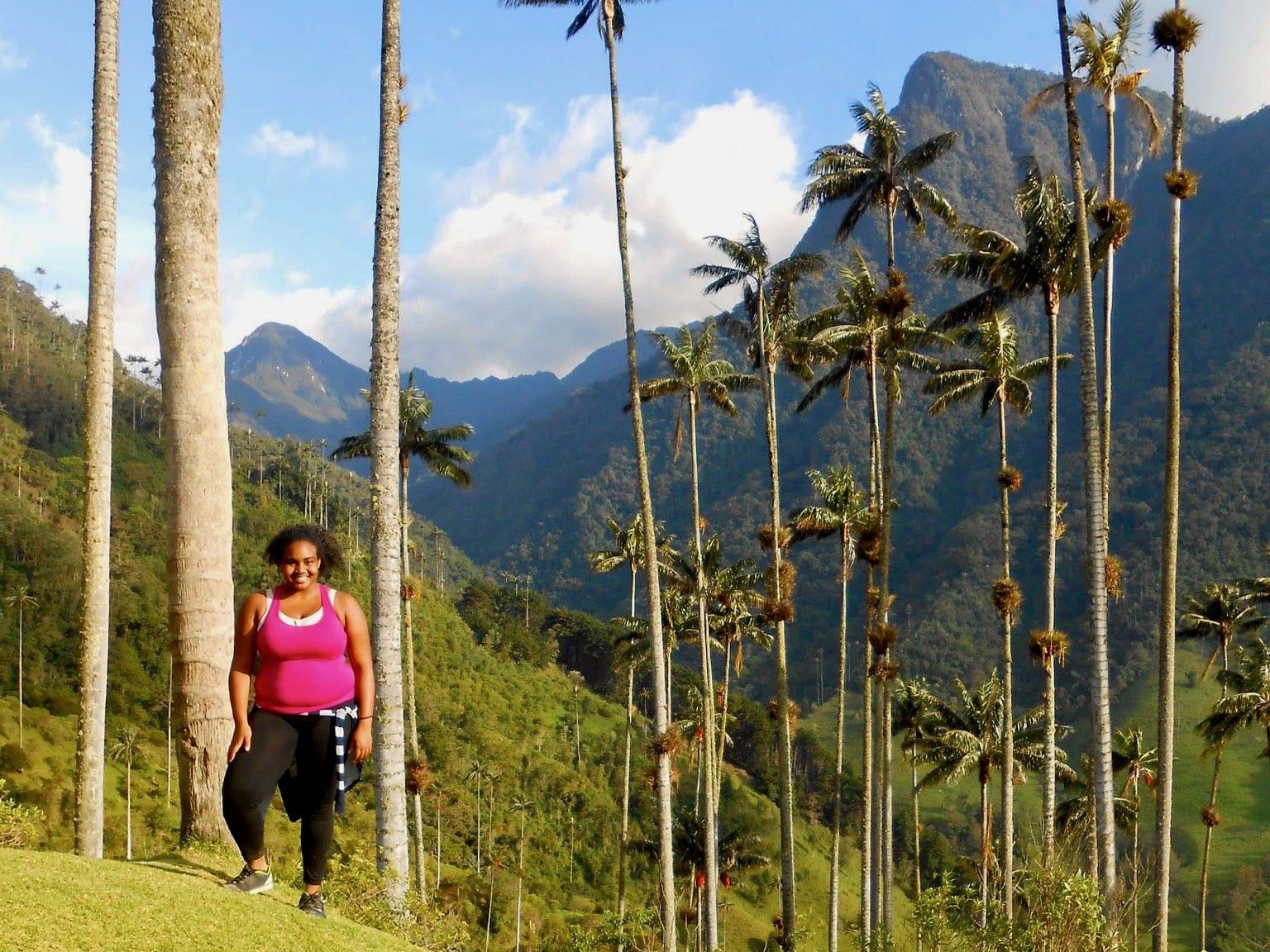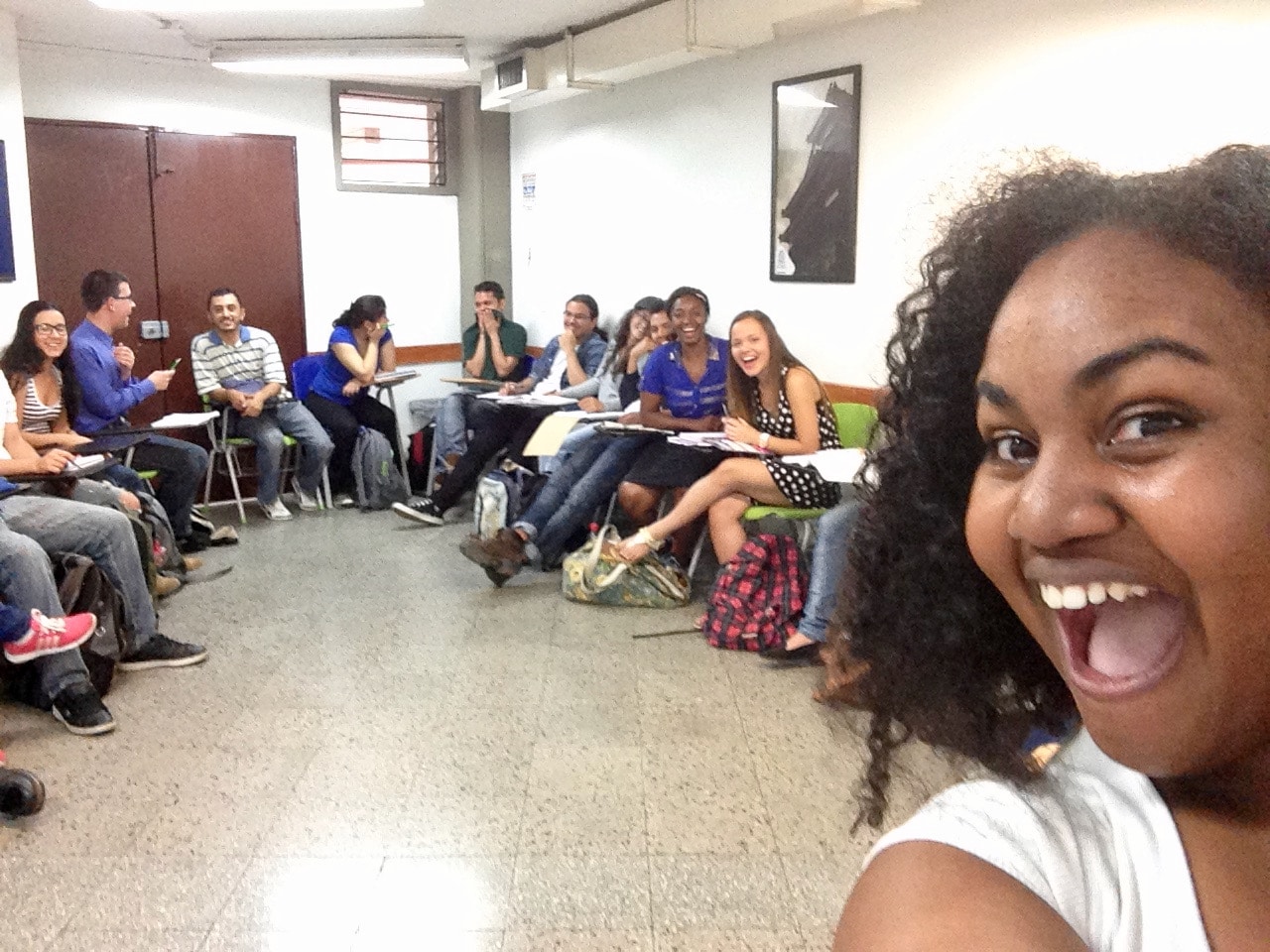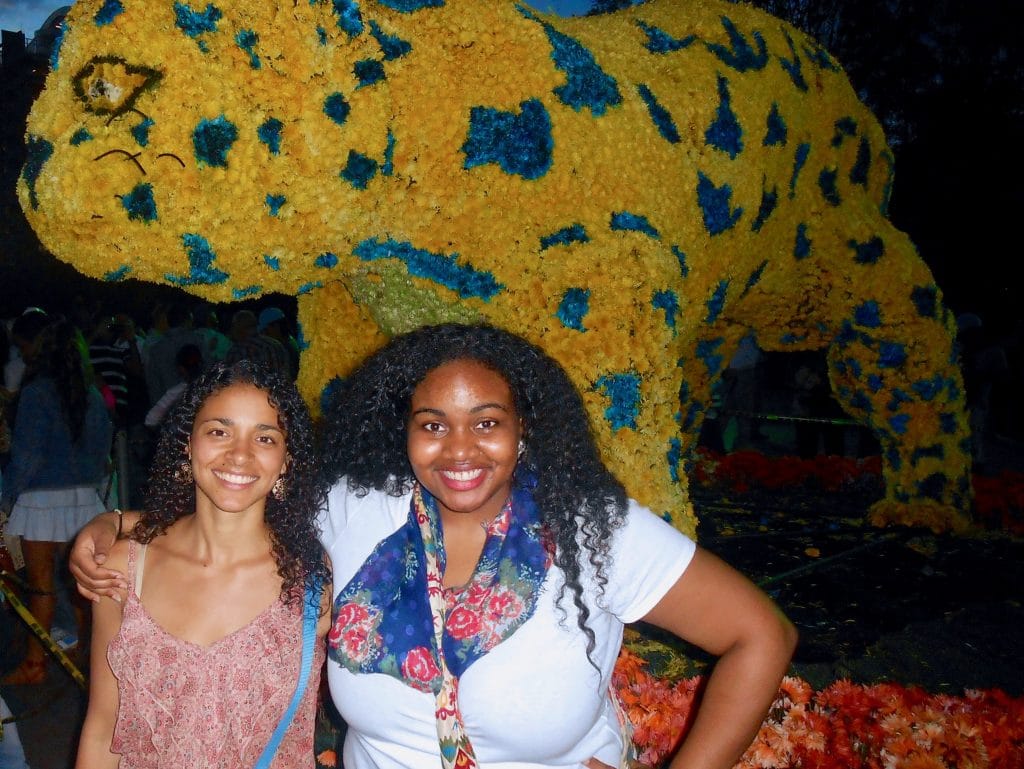
The Fulbright English Teaching Assistantship (ETA) places recent college graduates and young professionals from the United States in classrooms around the world to facilitate the teaching of English. The one-year fellowship, which has opportunities in over 70 countries, is designed to foster intercultural understanding and communication through an immersive cultural experience. In addition to their teaching roles, ETAs serve as ambassadors for the U.S., sharing their culture and forming relationships with residents of their host country. The ages and English abilities of students vary significantly by country and applicants can apply to one country per application.
We talked to Tiffany Brown, a Fulbright English Teaching Assistant to Colombia, to learn more about the fellowship and get some tips for preparing an application.
1. What inspired you to apply for the Fulbright ETA in Colombia?
After studying abroad in Argentina during my junior year, I knew that I wanted to go back to Latin America after graduation. I chose the Fulbright ETA because I had been studying to become a Spanish teacher, and I wanted to get some international experience that I could bring back to my classroom once I returned to the States. There were a couple of factors that led me to choose Colombia specifically. First, I wanted to go to a Spanish speaking country where I would teach high school or college-aged students. Additionally, as a black woman who had experienced racial microaggressions in Argentina, I also wanted to make sure that I would be in a country with a sizable Afro-descendant population. Outside of Brazil, Colombia has the largest black population in the region. Finally, I was genuinely interested in learning more about the culture.

2. How has the fellowship experience influenced your current work?
I can definitively say that my Fulbright changed my life’s trajectory. Prior to becoming an ETA, my plan was to teach abroad for a year and return home to become a high school Spanish teacher. The tourism slogan is, “The only risk is wanting to stay,” and I can say that it was certainly applicable to me and my experience! While I was there, I fell in love with Colombian culture and learned so much about myself in the process.
My primary role as an ETA was to teach weekly conversation classes and facilitate cross-cultural understanding of American culture and values through cultural workshops and other programming. I also had ample opportunities to travel and deepen my understanding of the regional and ethnic diversity that makes Colombia such a beautiful country. I pushed myself out of my comfort zone to try new activities and became pretty good at salsa dancing and hiking in the process!
I made some incredible friendships and also had the opportunity to learn more about minority rights and social inclusion efforts. As a black woman representing the U.S. during a time where reports of ongoing police brutality were making international headlines, my presence there was particularly significant. I organized a Black History Month series for my students and helped to facilitate some tricky conversations about race, identity, and marginalization within the U.S. and Colombian contexts. This experience reaffirmed my belief in the importance of amplifying diverse voices and perspectives that represent America to the world. My ETA grant was my first major foray engaging in citizen diplomacy, and afterwards, I was eager to continue pursuing other opportunities to further cross-cultural understanding.
After teaching in Colombia for an additional year, I applied for a Princeton in Latin America fellowship where I ended up working at a nonprofit in the Dominican Republic for two years. I had a significant leadership role that drew upon the skills and experiences I gained during my Fulbright grant. Through my experiences there and in other professional opportunities, I realized my passion for connecting people across languages and cultures, which ultimately inspired my decision to pursue a career as a diplomat through the Rangel Fellowship.

3. What tips would you give others applying to the Fulbright ETA in Colombia?
Fulbright looks for people with demonstrated skills in cross-cultural communication, curiosity, and an eagerness to represent the U.S. to their host country. In Colombia, specifically, they preferred ETAs that had prior teaching or tutoring experience. I think what helped my application to stand out is that I was training to become a Spanish teacher, had prior experience doing independent research abroad, and I used my essays to clearly demonstrate how my personal and professional interests were linked to the work I would do in Colombia.
Unlike most Fulbright hopefuls, I started my application the first week of August — about 4 weeks before my campus deadline! To say that this was a very intense and stressful period for me would be an understatement. In those four weeks, I met with my Fulbright Program Advisor (FPA) at least twice a week to go over the latest drafts of my essays. I sent my essays out to several faculty members, friends, and Writing Center staff for review. Looking back, I would definitely recommend starting over the summer. Having several months to slow down and really think about what you want to write in these statements is certainly the better option. With that said, it can be done in less time.
5 points of advice for preparing a winning Fulbright application:
- Start early. Give yourself time to review any previous essays that you have written as well as any drafts that your university might give you access to. Prepare to go through multiple drafts!
- Be genuine. Interviewers on your panel will ask you about your statements. If you can’t realistically convey the stories you wrote about, it will not reflect well on your application.
- Write a compelling story. Reviewers don’t need to see you rattling off all of your accomplishments in college. That’s what the rest of your application is for. Grab their attention with the first line of your essay and keep it!
- Relate it back to your proposed country. If you’re writing a great essay about why they should choose you, yet you haven’t answered why you chose them, you haven’t really answered the question. Think about why your personal and professional interests led you to this country as your next step.
- Know what you bring to the table. Oftentimes, applicants get rattled when they read prior grantees’ bios and think about how they can’t measure up. The application is reviewed holistically, so focus on what you bring to the table and highlight aspects of your accomplishments or experiences that you are most proud of.

Tiffany Brown is an advocate for diversity and inclusion in global education. Shortly after graduating with a BA in Spanish (2014) from the University of Georgia, she moved to Medellin, Colombia and worked as a Fulbright English Teaching Assistant at la Universidad de Antioquia. Later, Tiffany spent two years working as a Princeton in Latin America fellow at an education nonprofit in the Dominican Republic, where she pursued her interests in social justice and community education. She has continued her commitment to inclusive global education through her work with various organizations supporting equitable access to experiential learning opportunities. As a 2021 Charles B. Rangel International Affairs Graduate Fellow, Tiffany intends to pursue a master’s in Latin American Studies and plans to continue promoting cross-cultural understanding as a Public Diplomacy Officer. In her free time, Tiffany enjoys traveling and dancing. She is fluent in Spanish and has studied Portuguese and Haitian Creole.
Interested in applying? Bookmark the Fulbright English Teaching Assistantship your ProFellow account.
© ProFellow 2021, all rights reserved